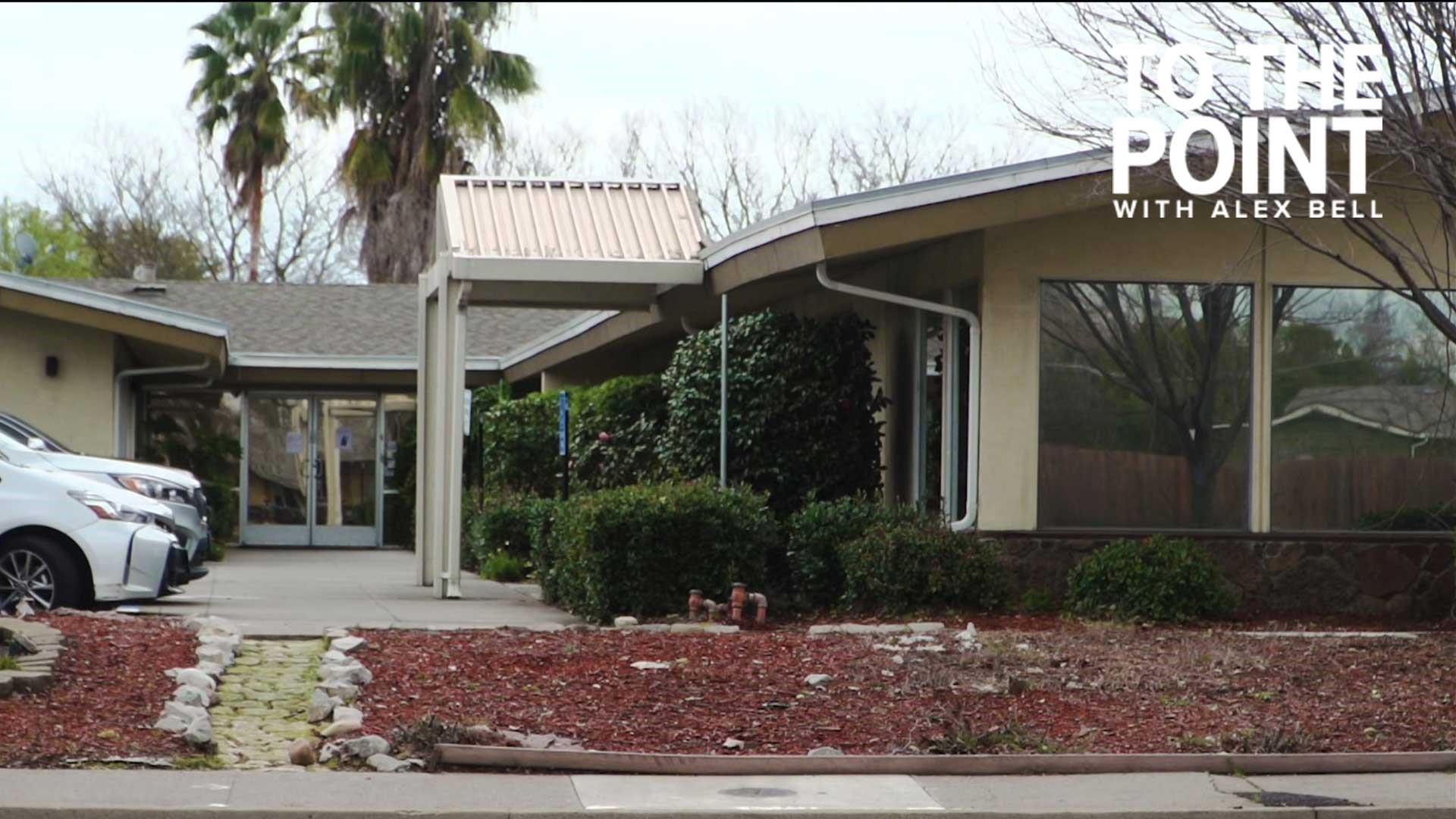SACRAMENTO, Calif. — In 2018, Katharina Heckley suddenly fell down the stairs.
"I literally was just going out to feed the cats and that's when it all happened," she said.
Heckley was born deaf and uses her hands to speak, but that night she lost all ability to control her hands.
"I went numb. I was in shock," she said remembering how she laid on the ground until her family found her the next morning.
She was rushed to the hospital and into surgery after suffering a brain bleed. After surgery, Heckley needed an IV treatment for an infection.
Instead of going home, she was transferred to Capital Transitional Care, a skilled nursing and rehabilitation center in South Sacramento. She says she immediately saw red flags.
"There was no sign that even indicated that I was a deaf patient to anybody there. It literally left me without a voice. They called me deaf mute. It was the most oppressive environment I had been in. I wanted to say to everybody, 'Hi, I'm a human being. I'm just like you,'" she said.
Heckley stayed at Capital Transitional Care for three months. She says she repeatedly asked for an American Sign Language interpreter, but the facility never provided one. She remembers staff trying to communicate by writing on paper but because of her injury there were times she couldn’t write at all.
"For 24 hours a day, I'm robbed of my ability to communicate," she said.
Heckley adds there were moments she refused medication because staff didn’t describe what the medications were.
Months later, with the help of her family and NorCal Services, a Sacramento nonprofit who help the deaf and hard of hearing, she filed a complaint against Capital Transitional Care with the California Department of Public Health.
CDPH found the facility violated Heckley's rights to communicate in 2022 saying, "The resident's communication needs in American Sign Language services were not provided timely," and put her "at a higher risk for unmet care needs."
The state’s investigation showed an ASL interpreter was only provided once, three days before she was discharged. During that time, Heckley raised concerns with the facility about the need for more services for people who are deaf.
"I was trying to show them that they have this service available for people who speak other languages. That's what ASL is, to me, it's my language," she said.
Under California code, if a language barrier exists between a skilled nursing facility and patients, then arrangements should be made for interpreters to ensure adequate communication. The right to a sign language interpreter is also protected by the Americans with Disabilities Act. Under the law, health care providers are required to have qualified interpreters available for people who are deaf or hard of hearing.
ABC10 reached out to Covenant Care, who owned and operated Capitol Transitional Care in 2019.
Covenant Care told us, in part, "Covenant Care takes the Americans with Disabilities Act seriously. At all times, Covenant Care strives to follow all federal, state and local health and safety regulations and guidelines in providing a high level of care for its residents."
The most recent state data shows the facility averaged higher than normal complaints. For example, the statewide average of complaints received was 45 in 2021. Capital Transitional Care received 103.
As for why Heckley is sharing her story? She says she wants the Deaf community to have access to communication.
"We face barriers all the time. It's time to resolve these barriers. It's time to do something about this. We're human and just like everybody else. We have a right to communication, the right to interpreters," she said.
Capital Transitional Care changed ownership in April 2023. The facility is now under new ownership and has been renamed Capital Post-Acute.
If you or a loved one are in a long-term care facility and have concerns about the quality of care, rights violations and any other issues related to health and safety, you can contact a local long-term care Ombudsman office to ensure your facility is providing adequate care.
You can also call the statewide CRISISline at 1-800-231-4024. The CRISISline is available 24 hours a day, seven days a week to take calls and refer complaints from residents in long-term care facilities.
WATCH MORE ON ABC10: How a Sacramento clinic helped a sex trafficking survivor retake control of her life

















